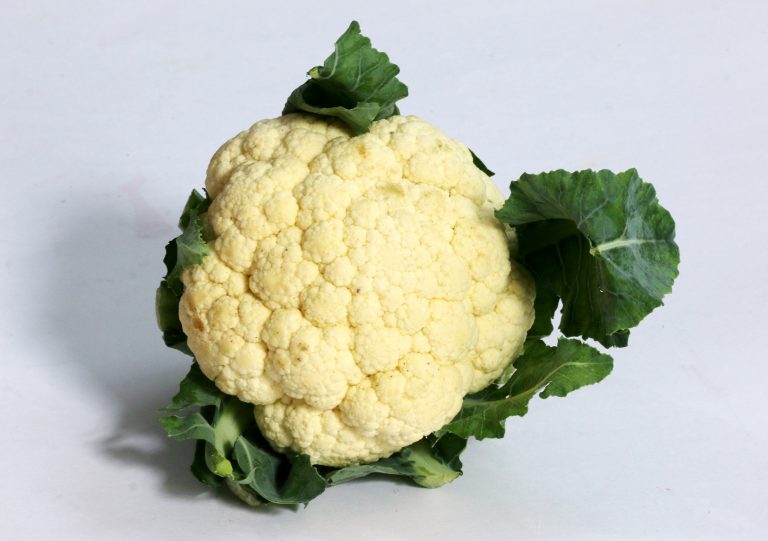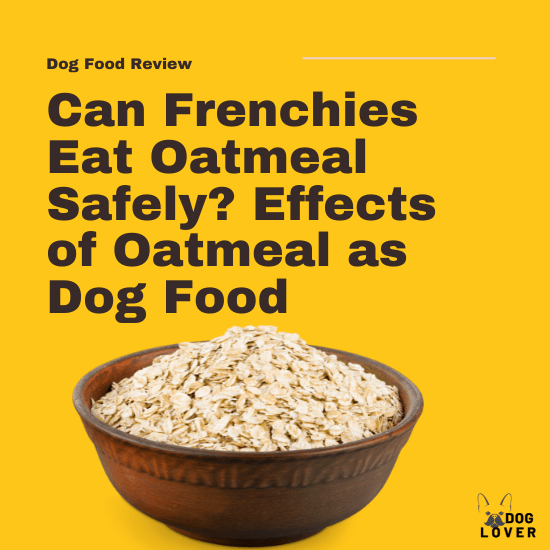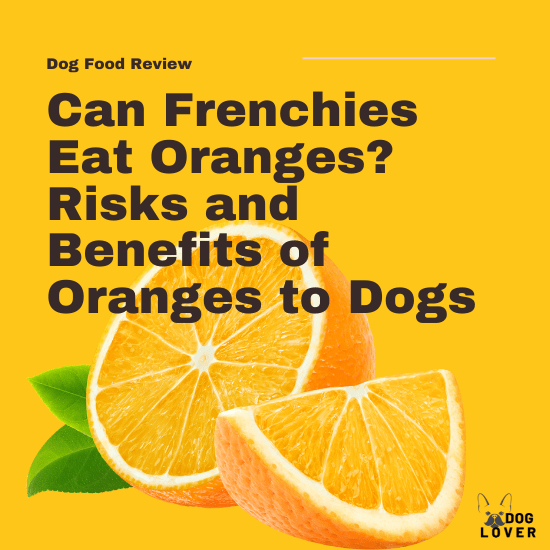Yes, Frenchies can eat squash safely as it’s neither toxic nor harmful to dogs. This fruit (squash is technically a fruit) is delicious and incredibly nutritious, making it a healthy addition to a dog’s diet. Feeding squash can offer multiple health benefits to dogs.

Squash is a good source of dietary fiber. Dogs need fiber to keep their digestive systems working properly and improve bowel movements. Fiber also keeps dogs full for longer, which helps manage weight in overweight dogs. The fiber in squash can help regulate the blood sugar levels making it a good choice for diabetic dogs.
Squash is also filled with antioxidants, which can help dogs fight diseases, improve their immune health, and combat the free radicals that cause oxidative damage to their cells. It contains several other essential nutrients, including vitamins A, C, B6, and minerals like potassium, magnesium, folate, and phosphorus. These play crucial roles in promoting good health in canines. They can help:
- Improve skin, coat, eye, and heart health
- Boost gut and immune system health
- Promote proper nerve, muscle, and kidney functioning.
Squash for dogs should be prepared without any oils, salts, or other seasonings which can harm dogs. Additionally, ensure you peel the skin and remove the seeds before feeding squash to your dog. This is because the skin is hard to chew and digest, making them likely to cause choking or obstruction to dogs. While one or two squash seeds are unlikely to harm your dog, ingesting too many can irritate its tummy.
Raw Squash
Raw squash is not toxic. However, it’s very tough and highly fibrous hence hard to chew and digest. Dogs may also find raw squash unpleasant and tasteless.
Can Frenchies eat raw squash safely?
Yes, Frenchies can eat raw squash in very small amounts safely. Raw squash has nothing toxic or poisonous; hence, it’s safe for dogs to consume. Although dogs can eat raw squash, it does not mean they should. Raw squash is tough for dogs to chew and digest. Feeding this may cause a bellyache and other gastrointestinal issues, including vomiting and diarrhea.
Additionally, large bits of raw squash can be a choking risk. They can also create intestinal obstructions if dogs don’t chew them or eats them whole. This is a potentially life-threatening condition that may require emergency surgery to correct.
Cooked Squash
Cooking squash helps make it soft and easy for dogs to chew and digest. Cooked squash is tastier and more appealing to dogs.
Can Frenchies eat cooked squash safely?
Yes, cooked squash is not only nutritious but also perfectly safe for dogs to consume. Unlike raw squash, cooked squash is easy for dogs to chew and digest. Feeding cooked squash is the best way to offer this vegetable to your dog. Since it’s easy to digest, dogs can absorb maximum nutrients from cooked squash.
However, squash for dogs should be cooked plain without additives or seasonings, which may be harmful to dogs. Ingredients such as onion and garlic are toxic and should never be added to cooked squash for dogs.
Butternut Squash
Butternut squash is closely related to pumpkin. This vegetable is incredibly nutritious and healthy for dogs. It’s loaded with important nutrients vital for a dog’s health.
Can Frenchies eat butternut squash safely?
Yes, Frenchies can eat butternut squash and benefit from its many nutrients. Butternut squash is high in fiber which aids digestion and improves bowel and colon health. Feeding this vegetable can help regulate a dog’s blood sugar levels.
Butternut squash contains several minerals and vitamins, including vitamin A and C, potassium, phosphorus, magnesium, and folate. These contribute immensely to the overall well-being of dogs. It’s also packed with antioxidants, including beta-carotene. These are crucial in helping dogs fight diseases and combat the harmful effects of free radicals.
Butternut squash for dogs can be roasted, baked, boiled, steamed, or microwaved. However, it should be prepared without any additives that may harm dogs.
Acorn Squash
Acorn squash is nutritious and packed with beneficial nutrients. Feeding this squash to dogs can help improve their health. It’s filled with vitamin A, B6, potassium, and folate.
Can dogs eat acorn squash safely?
Yes, acorn squash is perfectly safe for dogs to consume. It’s rich in beta-carotene, which is vital for better eye health. It also contains significant amounts of potassium which is essential for body fluid regulation, proper nervous system functioning, and prevention of hypokalemia.
It’s also low in calories, making it excellent for dogs looking to shed some pounds. The high water and fiber content in acorn squash ensure that the digestive system of dogs runs smoothly.
However, a raw acorn is hard for dogs to digest and should thus not be fed to dogs. The skin and seeds can sometimes pose digestive issues and intestinal obstruction.
Squash Seeds
Squash seeds are non-toxic and edible, and eating just a few is unlikely to negatively affect your dog’s health.
Can dogs eat squash seeds safely?
No, dogs should not squash seeds. While these are not toxic, they pose some risks when consumed in large amounts. Feeding squash seeds actively can irritate a dog’s throat. Ingesting too many seeds can also cause intestinal blockage. While one or two seeds are unlikely to harm dogs, it’s best to scoop them out before feeding squash to your dog.
The safest way to feed squash seeds to dogs is by baking and blending them and then adding them as a topper or an ingredient in homemade treats.
What else Can Frenchies Eat together with Squash?
The following are other foods that can go well with squash for dogs:
Broccoli:

Broccoli, whether raw or cooked, makes an excellent addition to a dog’s diet. Dogs can consume broccoli without any adverse effects as long as it’s fed in moderation. With its low calorie and fat content, this vegetable makes an ideal snack for dogs with weight issues. Broccoli is also packed with other nutrients, including vitamins, minerals, fiber, and antioxidants crucial for proper health in dogs.
Broccoli contains a generous amount of fiber which is helpful for digestive health and in making bowel movements regular. It’s also rich in lutein which promotes eye and heart health.
Minerals present in this vegetable include chromium, potassium, magnesium, and sodium. It also contains vitamins A, B, C, D, E, and K. Together, these nutrients can help to:
- Minimize inflammation
- Promote kidney and heart health
- Boost immune health
- Support healthy nervous system functioning
- Improve bone strength and density
Broccoli should, however, be fed in moderation as its florets contain isothiocyanates that can cause severe gastric irritation in dogs if ingested in large amounts. Broccoli stalks also pose a choking and gastrointestinal obstruction risk to dogs, especially small ones. You should thus chop them into small pieces before feeding them to your dogs.
Cauliflower:

Dogs can safely eat cauliflower as it’s among the healthy vegetables for dogs. This vegetable can provide numerous health benefits for dogs in the right amounts. It’s high in antioxidants that guard against the adverse effects of free radicals, slow the aging process, help reduce inflammation, and aid in fighting diseases in dogs.
In addition to helping dogs maintain a healthy weight, this low-calorie vegetable is abundant in soluble fiber. This not only aids digestion but also ensures healthy bowel movements. It also includes vital phytonutrients and isothiocyanates, which help prevent cancer and heart disease by providing oxidative protection.
Cauliflower is also high in choline which helps in liver detoxification and improves cognitive functioning. However, this vegetable should be served in moderation because feeding too much can cause excessive gassiness, diarrhea, vomiting, and other gastrointestinal problems. Raw cauliflower can also cause a tummy upset in dogs.
Carrots:

Besides being tasty, carrots are filled with beneficial nutrients for dogs. When fed properly and in the right amounts, these crunchy vegetables can make excellent treats for dogs.
Carrots are low in calories but contain antioxidants, vitamins, and minerals. Given their crunchy texture, chewing these vegetables can help remove plaque from a dog’s teeth and improve its oral health. Carrots make an excellent natural dental floss for keeping a dog’s breath fresh.
Other essential nutrients in carrots include beta-carotene, vitamins C and K, and minerals like potassium, manganese, and magnesium. All these are critical in maintaining good health in dogs.
However, feeding whole carrots to dogs can lead to choking. It’s thus essential to chop them into bite-sized pieces before feeding. Carrots should also be fed in moderation as they are high in sugar and fiber, leading to unhealthy weight gain, tooth decay, vomiting, diarrhea, and other gastrointestinal issues.
Bananas:

Bananas are healthy and full of beneficial vitamins and minerals that are good for dogs. These fruits are high in potassium, vitamin C and B6. They are also packed with fiber which aids digestion and is helpful for weight management in dogs. Minerals like magnesium, potassium, and biotin are also abundant in bananas.
Feeding bananas to dogs can help:
- Improve digestion and resolve gastrointestinal issues like constipation and diarrhea
- Boost immunity
- Promote healthy skin and coat quality
- Regulate fluid balance
- Support cognitive health
- Aid muscle development and improve bone density
- Promote healthy kidney and heart functioning
- Help the body use minerals and vitamins more effectively
However, bananas are extremely sugary and can lead to obesity, diabetes, and tooth decay if consumed in high amounts. They should thus be fed in moderation, not as a regular part of a dog’s diet.
What are the health advantages of feeding Squash to your dog?
Squash is undoubtedly nutritious and beneficial to dogs. Some of the health advantages of feeding squash to your dog include:
- High in fiber: Squash is a rich source of fiber that keeps the digestive system of dogs running smoothly. Fiber also helps keep dogs satiated for longer, aiding in weight management for overweight or those with gigantic appetites. What’s more, fiber can help regulate blood sugar levels in dogs.
- Good source of vitamin A: This vitamin is vital for good eyesight in dogs. It is also important for improving skin and coat health and promoting healthy growth and strong bones.
- Rich in vitamin C: Squash is loaded with vitamin C, which dogs need for a healthy immune system. Vitamin C is also necessary for promoting healthy skin and coat quality.
- Low in calories: Squash is low in calories but high in water and fiber content, making it useful in keeping a dog full without piling extra calories.
- Full of antioxidants: this vegetable is high in antioxidants, which help reduce inflammation, fight oxidative stress and combat diseases like cancer.
- Packed with minerals: Squash contains several minerals like calcium, magnesium, phosphorus, and potassium. Phosphorus works with calcium to build strong bones, magnesium aids the body in absorbing other vitamins and minerals, and potassium is necessary for proper nerve functioning and body fluid regulation.
What are the disadvantages of feeding Squash to your dog?
Although squash has various health benefits for dogs, like any other good food, there are some disadvantages to feeding it to dogs.
- Stomach upset: Squash seeds are not toxic, but ingesting them in large amounts can irritate your dog’s stomach.
- Choking/obstruction risk: Ingesting squash seeds in large amounts at once can put your dog at the risk of choking. Squash skin is additionally hard to chew and digest. If swallowed in large chunks without proper chewing, this can lead to intestinal blockage.
- Possible allergies: Although this is not very common, some dogs are allergic to squash. Feeding this vegetable can elicit allergic reactions, including itching, diarrhea, vomiting, and ear infections in such dogs.
What are the best dog foods with Squash?
Squash is filled with beneficial nutrients that dogs need. Besides being rich in fiber essential for healthy digestion, this vegetable contains a host of other nutrients, including antioxidants, vitamins, and minerals that can support the overall health of dogs.
Squash contains vitamins A, C, and K, which are important for eye health, good skin and coat, and bone strength and density, among other functions. It also contains minerals like potassium and phosphorus. These play important roles in building strong bones, improving nervous system health, and body fluid regulation.
Given these health benefits, some dog food brands list squash in their ingredient lists. Some of the best foods with squash include:
- JustFoodForDogs Venison & Squash Recipe Fresh Frozen Dog Food
- Earthborn Holistic Venture Limited Ingredient Grain-Free Smoked Turkey & Butternut Squash Dry Dog Food
- ACANA Singles Limited Ingredient Diet Pork & Squash Recipe Grain-Free Dry Dog Food
How to prepare Squashes for Dogs?
Before feeding squash to your dog, you should prepare it in the right way. This is how to do it:
- Go for organic squash: This is healthier and devoid of harmful pesticides and other dangerous compounds.
- Ensure you thoroughly wash your squash and chop it into bite-sized pieces to avoid choking.
- You can feed squash to your dog, either raw or cooked. If you decide to give it raw, ensure you remove the skin and the seeds to avoid irritating your dog’s tummy. These things can also cause blockage in your dog.
- If you opt for cooked squash, ensure no additives and seasonings like oils, salt, and other ingredients such as garlic and onion, which are problematic for dogs. You can bake, roast, or steam squash for your dog. No matter the method you choose, be sure to skip the seasonings.
- Feed it in moderation: While squash is nutritious, you should only feed it in moderation to avoid upsetting your dog’s stomach.
How Much Squash Should I Feed My Frenchie?
There’s no doubt that squash is nutritious and healthy for Frenchie. Despite its benefits, squash should only be fed in moderation. Giving too much can cause health problems in dogs. In high amounts, squash can cause stomach upset in your dog.
While the specific quantity your dog can eat depends on size and weight, squash should not make up more than 10% of a dog’s daily calories. However, the bigger the dog, the higher the amount of squash it can take.
When introducing squash to your dog for the first time, give very small amounts as you watch its reactions. Discontinue feeding if you notice any adverse reactions. It’s also important to consult a vet before introducing your dog to any new food, squash included.


